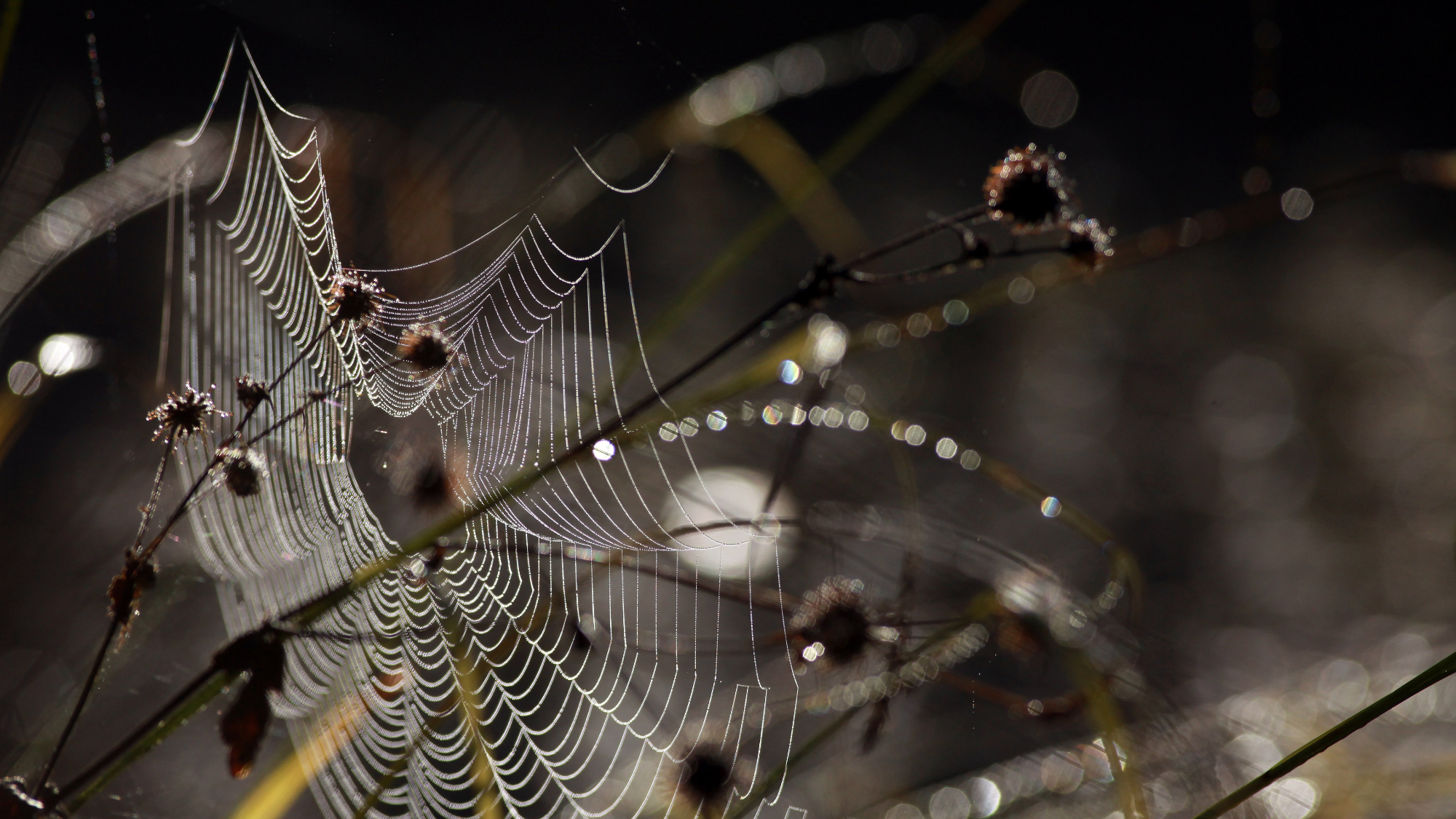Novel 'bone collector' caterpillar wears its prey
Hawaiian scientists discover a carnivorous caterpillar that decorates its shell with the body parts of dead insects


A free daily email with the biggest news stories of the day – and the best features from TheWeek.com
You are now subscribed
Your newsletter sign-up was successful
What happened
Scientists in Hawaii Thursday announced the discovery of a carnivorous caterpillar they call the "bone collector" due to its practice of decorating its silk-spun shell with body parts from arthropods it eats or scavenges.
The caterpillars use their carefully curated mélange of dead insect parts to hide from the spiders in whose webs they reside, the researchers said in the journal Science.
Who said what
The few species of meat-eating caterpillars "do lots of crazy things, but this takes the cake," said study author Dan Rubinoff, an entomologist at the University of Hawaii at Manoa. "No other caterpillar is stupid enough to live in a spider's web," because "spiders eat caterpillars," and no others wear body parts. The bone collectors have only been found in spider webs in a six-square-mile area of Oahu, and Rubinoff's team has seen only 62 of them in 20 years of searching.
The Week
Escape your echo chamber. Get the facts behind the news, plus analysis from multiple perspectives.

Sign up for The Week's Free Newsletters
From our morning news briefing to a weekly Good News Newsletter, get the best of The Week delivered directly to your inbox.
From our morning news briefing to a weekly Good News Newsletter, get the best of The Week delivered directly to your inbox.
The caterpillars prefer to eat struggling insects trapped in their host web or parts left behind by the spider, but they will hunt if need be, even other bone collectors. "That's why we never find more than one caterpillar per web," Rubinoff told USA Today.
What next?
As the species awaits a formal scientific name, "its common name, 'bone collector,' will do" for now, The Washington Post said. But its "current slice of paradise may be at risk" from "invasive ants and parasitic wasps," The New York Times said. "Scientists worry the caterpillars are on the verge of going extinct just as they've been discovered," USA Today said.
A free daily email with the biggest news stories of the day – and the best features from TheWeek.com
Peter has worked as a news and culture writer and editor at The Week since the site's launch in 2008. He covers politics, world affairs, religion and cultural currents. His journalism career began as a copy editor at a financial newswire and has included editorial positions at The New York Times Magazine, Facts on File, and Oregon State University.
-
 Political cartoons for February 18
Political cartoons for February 18Cartoons Wednesday’s political cartoons include the DOW, human replacement, and more
-
 The best music tours to book in 2026
The best music tours to book in 2026The Week Recommends Must-see live shows to catch this year from Lily Allen to Florence + The Machine
-
 Gisèle Pelicot’s ‘extraordinarily courageous’ memoir is a ‘compelling’ read
Gisèle Pelicot’s ‘extraordinarily courageous’ memoir is a ‘compelling’ readIn the Spotlight A Hymn to Life is a ‘riveting’ account of Pelicot’s ordeal and a ‘rousing feminist manifesto’
-
 Russia’s ‘cyborg’ spy pigeons
Russia’s ‘cyborg’ spy pigeonsUnder the Radar Moscow neurotech company with Kremlin-linked funding claims to implant neural chips in birds’ brains to control their flight, and create ‘bio-drones’
-
 How roadkill is a surprising boon to scientific research
How roadkill is a surprising boon to scientific researchUnder the radar We can learn from animals without trapping and capturing them
-
 NASA’s lunar rocket is surrounded by safety concerns
NASA’s lunar rocket is surrounded by safety concernsThe Explainer The agency hopes to launch a new mission to the moon in the coming months
-
 The world’s oldest rock art paints a picture of human migration
The world’s oldest rock art paints a picture of human migrationUnder the Radar The art is believed to be over 67,000 years old
-
 Moon dust has earthly elements thanks to a magnetic bridge
Moon dust has earthly elements thanks to a magnetic bridgeUnder the radar The substances could help supply a lunar base
-
 The ocean is getting more acidic — and harming sharks’ teeth
The ocean is getting more acidic — and harming sharks’ teethUnder the Radar ‘There is a corrosion effect on sharks’ teeth,’ the study’s author said
-
 Cows can use tools, scientists report
Cows can use tools, scientists reportSpeed Read The discovery builds on Jane Goodall’s research from the 1960s
-
 The Iberian Peninsula is rotating clockwise
The Iberian Peninsula is rotating clockwiseUnder the radar We won’t feel it in our lifetime
